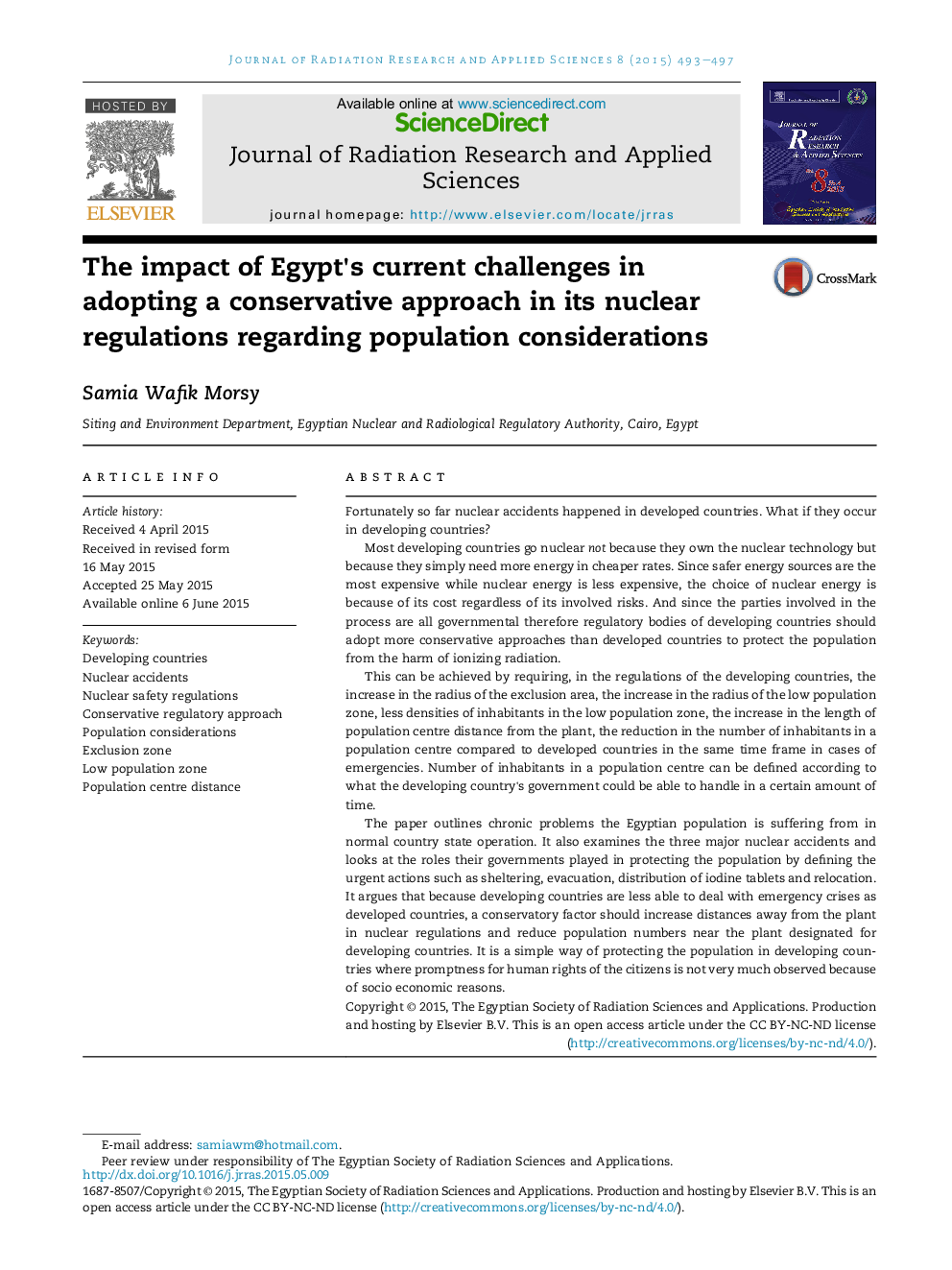| Article ID | Journal | Published Year | Pages | File Type |
|---|---|---|---|---|
| 1570260 | Journal of Radiation Research and Applied Sciences | 2015 | 5 Pages |
Fortunately so far nuclear accidents happened in developed countries. What if they occur in developing countries?Most developing countries go nuclear not because they own the nuclear technology but because they simply need more energy in cheaper rates. Since safer energy sources are the most expensive while nuclear energy is less expensive, the choice of nuclear energy is because of its cost regardless of its involved risks. And since the parties involved in the process are all governmental therefore regulatory bodies of developing countries should adopt more conservative approaches than developed countries to protect the population from the harm of ionizing radiation.This can be achieved by requiring, in the regulations of the developing countries, the increase in the radius of the exclusion area, the increase in the radius of the low population zone, less densities of inhabitants in the low population zone, the increase in the length of population centre distance from the plant, the reduction in the number of inhabitants in a population centre compared to developed countries in the same time frame in cases of emergencies. Number of inhabitants in a population centre can be defined according to what the developing country's government could be able to handle in a certain amount of time.The paper outlines chronic problems the Egyptian population is suffering from in normal country state operation. It also examines the three major nuclear accidents and looks at the roles their governments played in protecting the population by defining the urgent actions such as sheltering, evacuation, distribution of iodine tablets and relocation. It argues that because developing countries are less able to deal with emergency crises as developed countries, a conservatory factor should increase distances away from the plant in nuclear regulations and reduce population numbers near the plant designated for developing countries. It is a simple way of protecting the population in developing countries where promptness for human rights of the citizens is not very much observed because of socio economic reasons.
